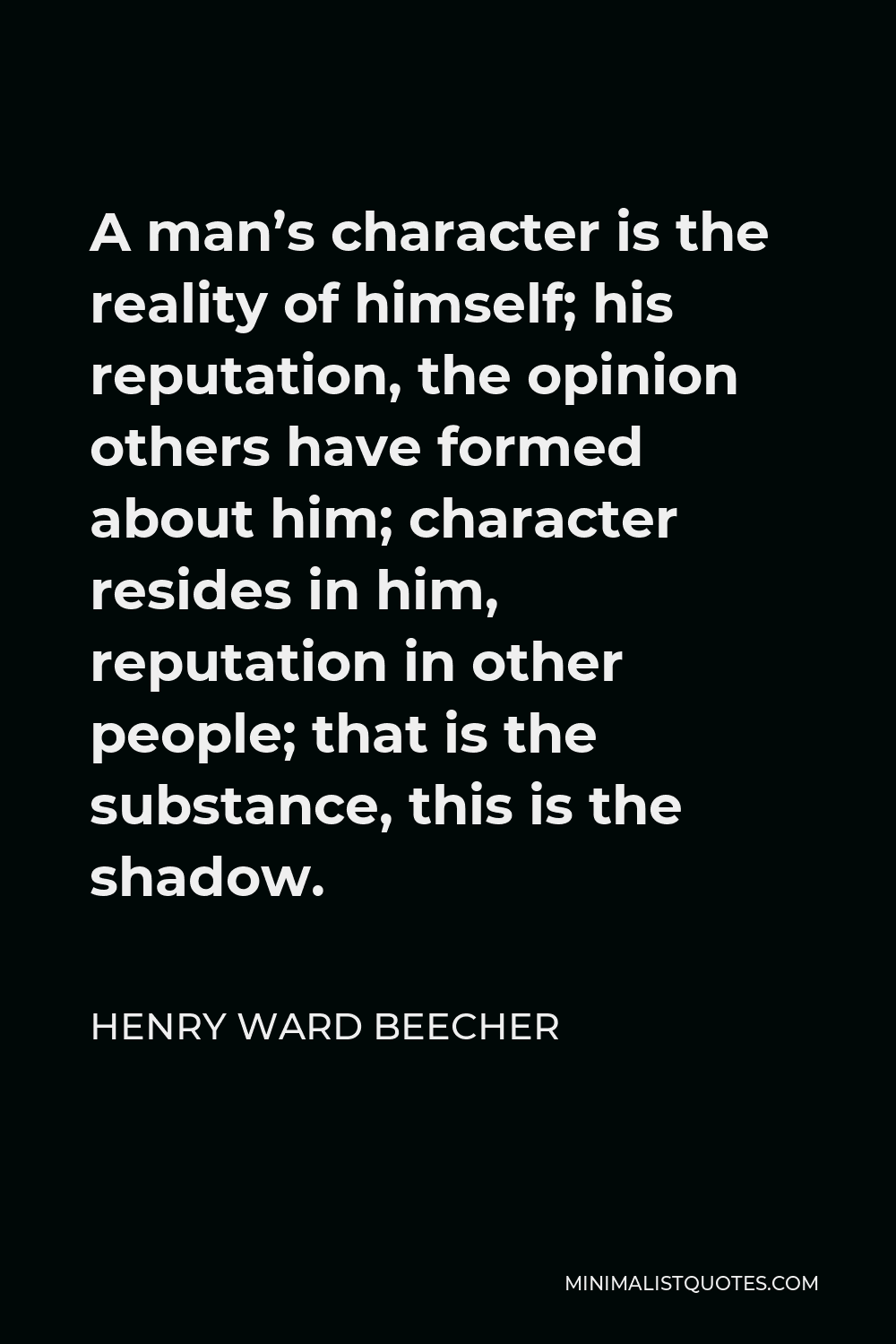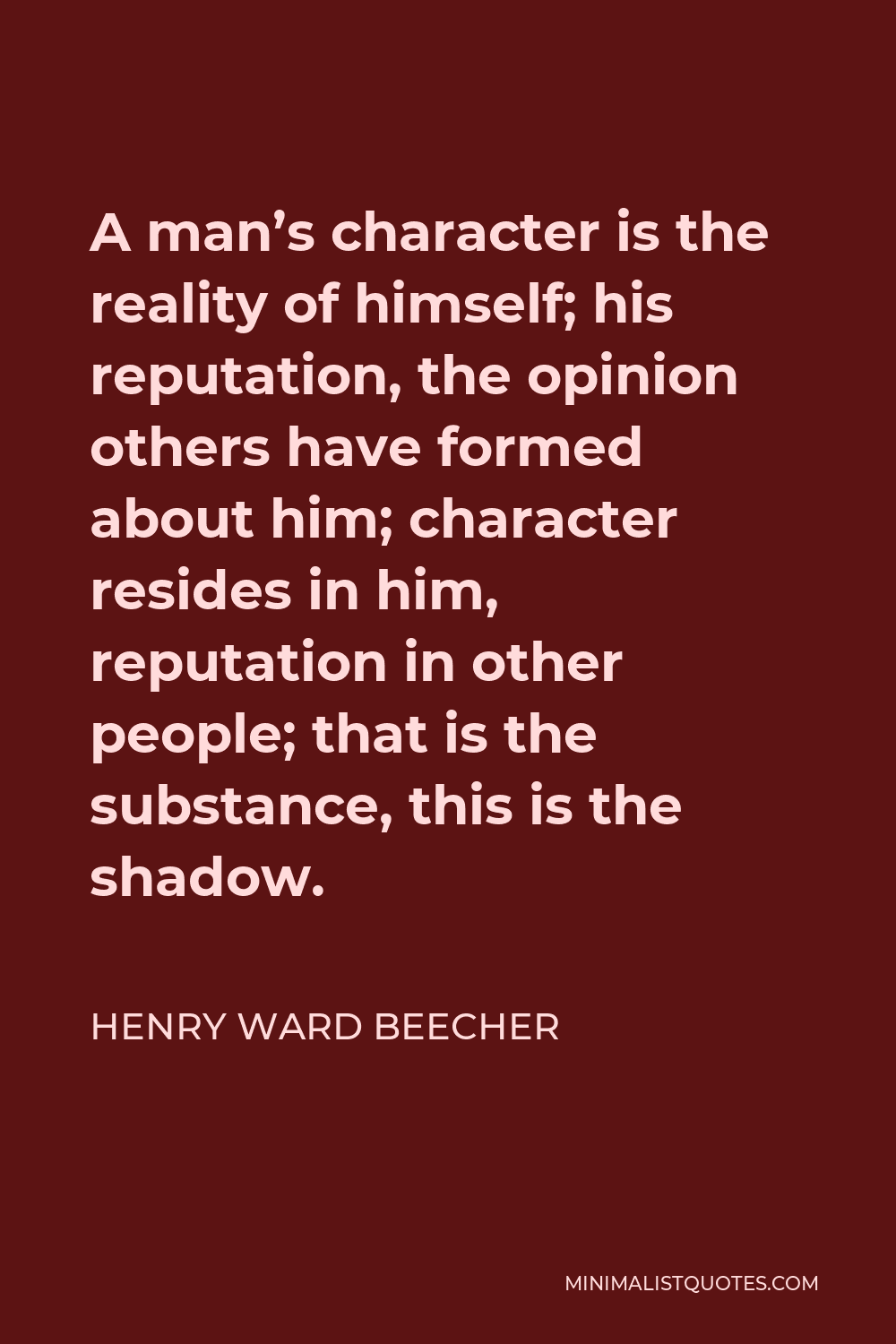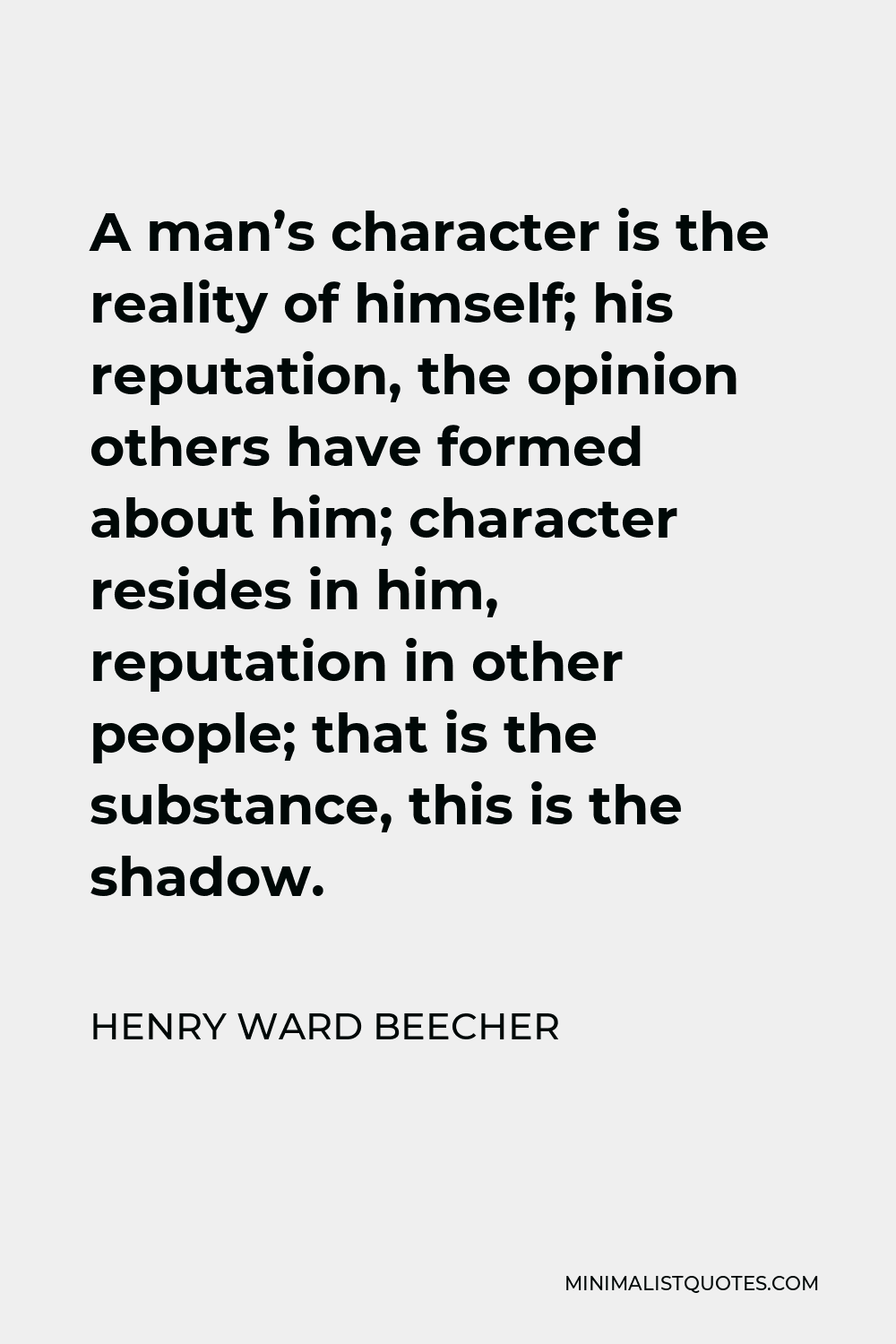True obedience is true freedom.
HENRY WARD BEECHERA man’s character is the reality of himself; his reputation, the opinion others have formed about him; character resides in him, reputation in other people; that is the substance, this is the shadow.
More Henry Ward Beecher Quotes
-





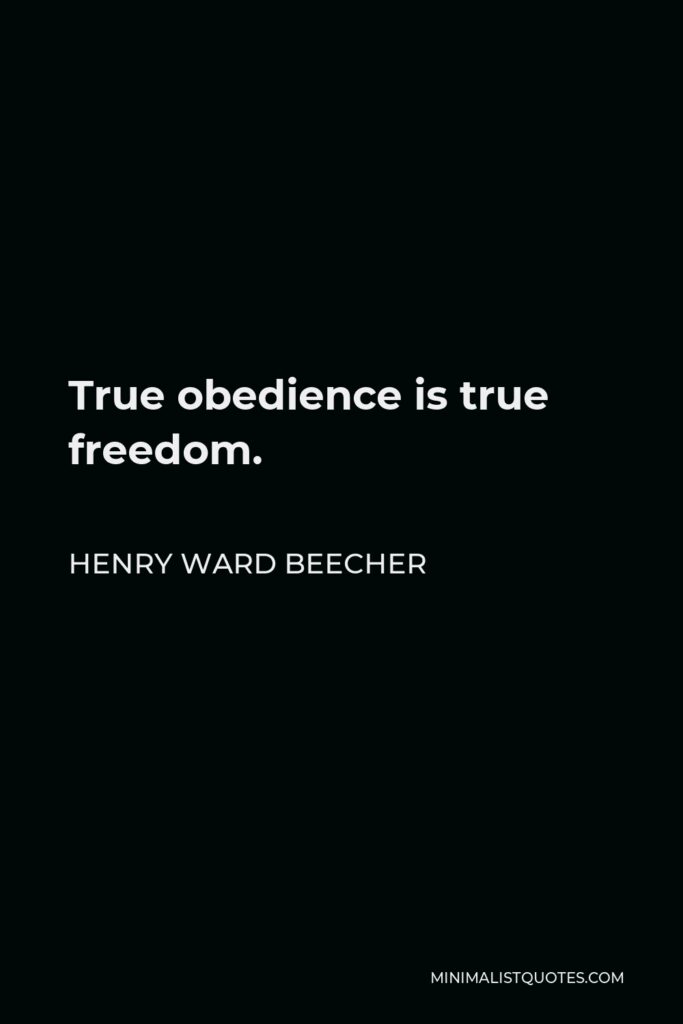

-







We never know the love of the parent for the child till we become parents.
HENRY WARD BEECHER -







A library is not a luxury but one of the necessities of life.
HENRY WARD BEECHER -







Home should be the center of joy, equatorial and tropical.
HENRY WARD BEECHER -





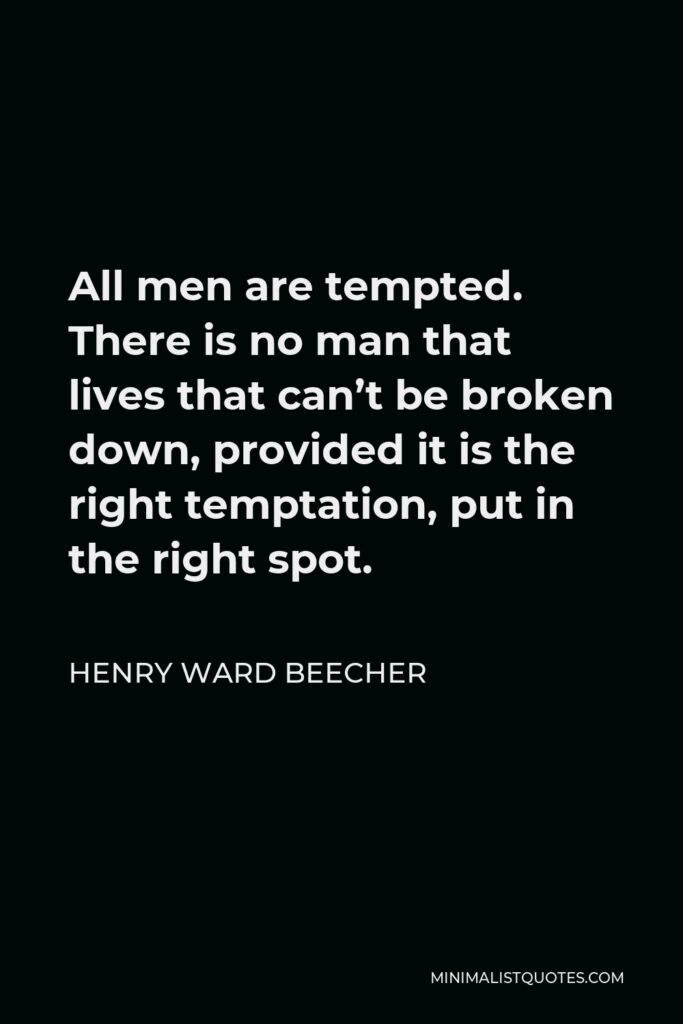

All men are tempted. There is no man that lives that can’t be broken down, provided it is the right temptation, put in the right spot.
HENRY WARD BEECHER -





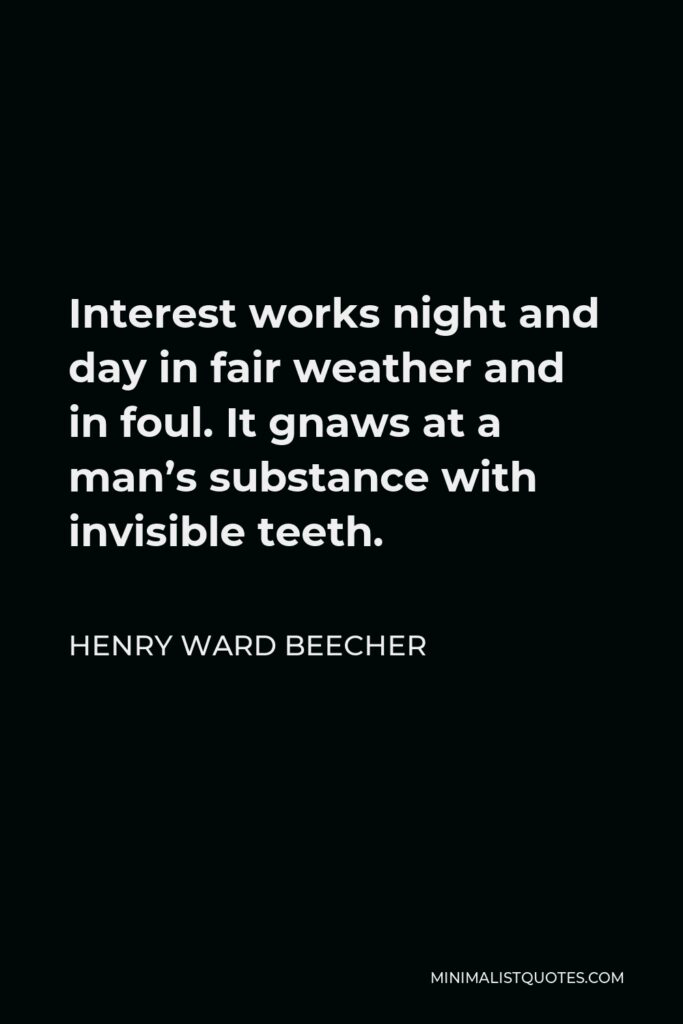

Interest works night and day in fair weather and in foul. It gnaws at a man’s substance with invisible teeth.
HENRY WARD BEECHER -





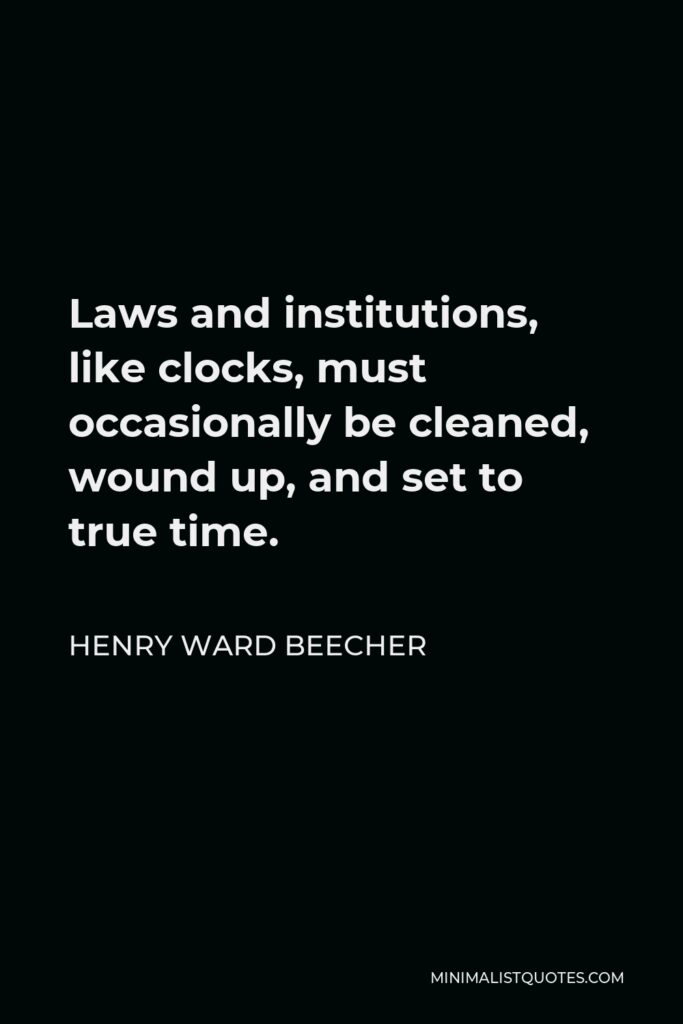

Laws and institutions, like clocks, must occasionally be cleaned, wound up, and set to true time.
HENRY WARD BEECHER -





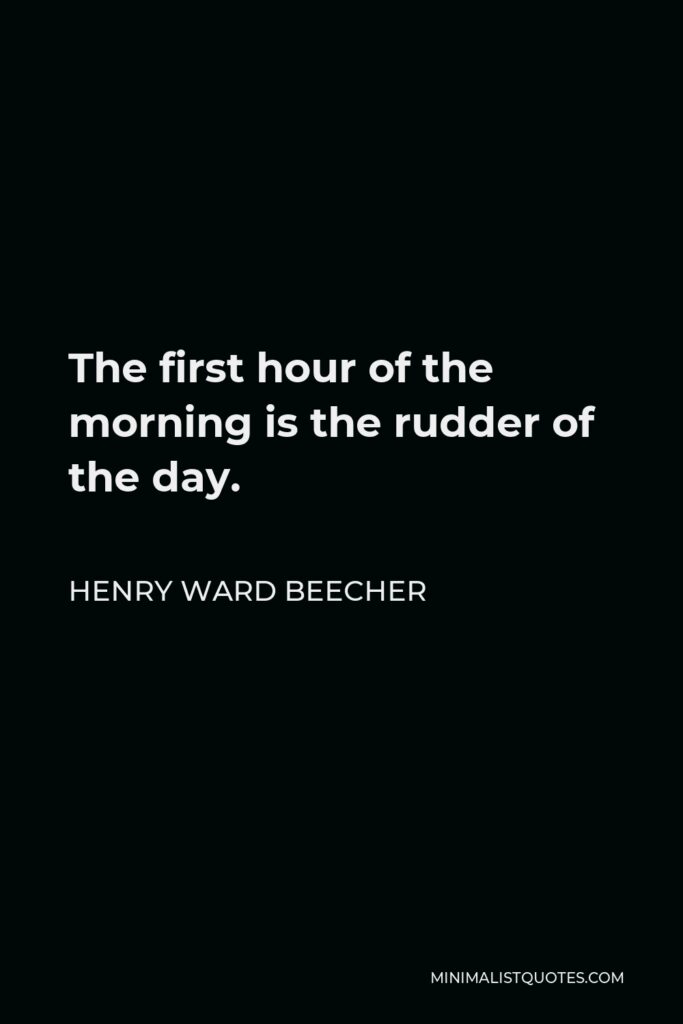

The first hour of the morning is the rudder of the day.
HENRY WARD BEECHER -





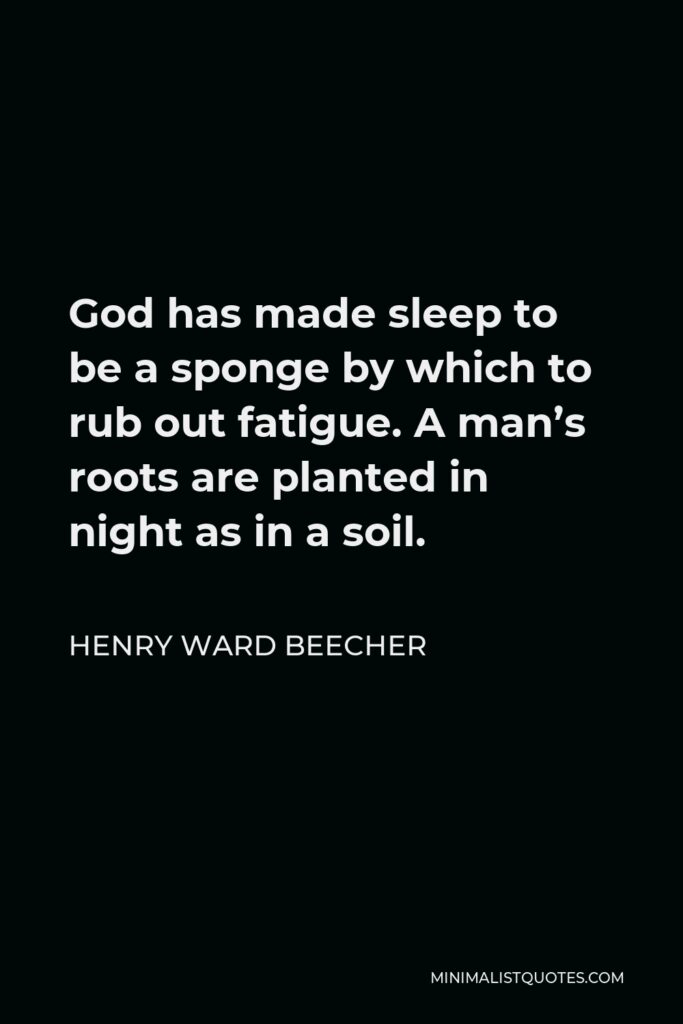

God has made sleep to be a sponge by which to rub out fatigue. A man’s roots are planted in night as in a soil.
HENRY WARD BEECHER -





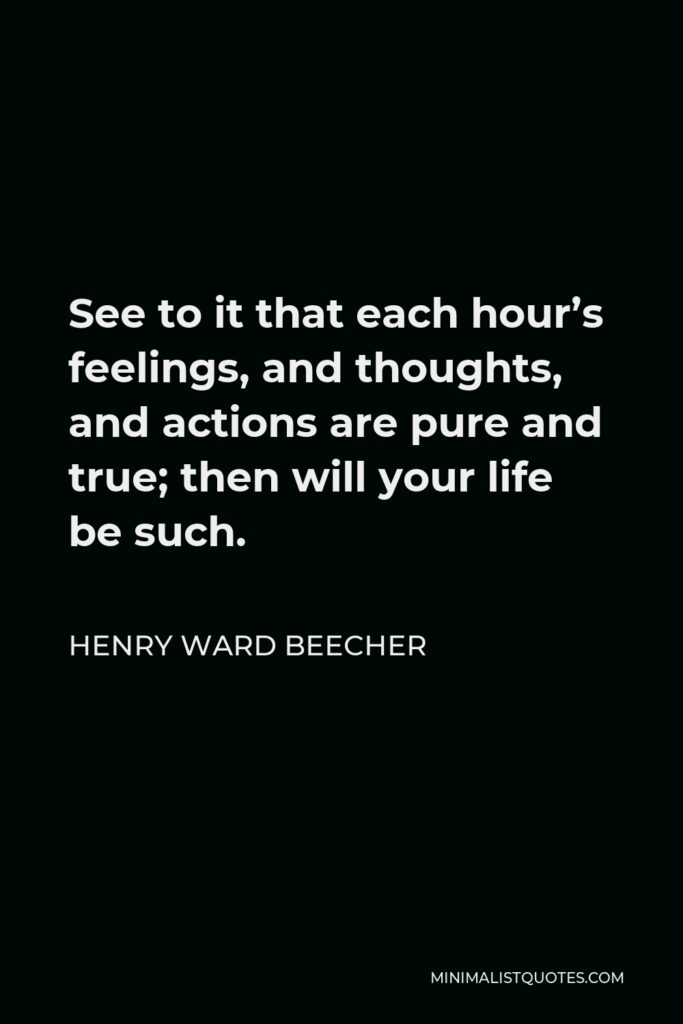

See to it that each hour’s feelings, and thoughts, and actions are pure and true; then will your life be such.
HENRY WARD BEECHER -





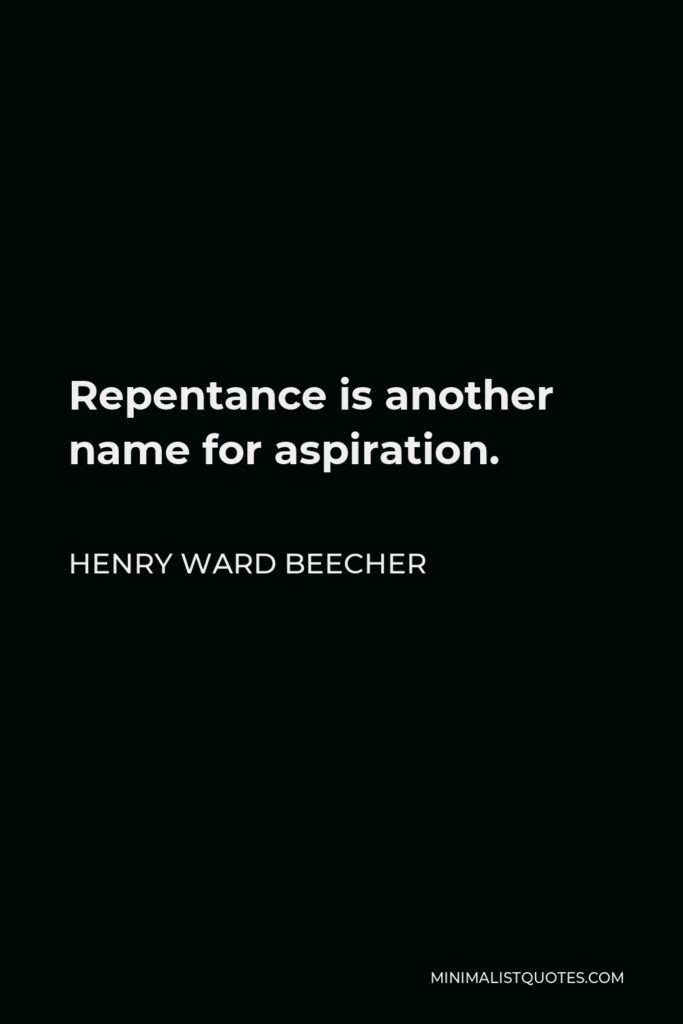

Repentance is another name for aspiration.
HENRY WARD BEECHER -







No coffee can be good in the mouth that does not first send a sweet offering of odor to the nostrils.
HENRY WARD BEECHER -







No matter what looms ahead, if you can eat today, enjoy today, mix good cheer with friends today enjoy it and bless God for it.
HENRY WARD BEECHER -





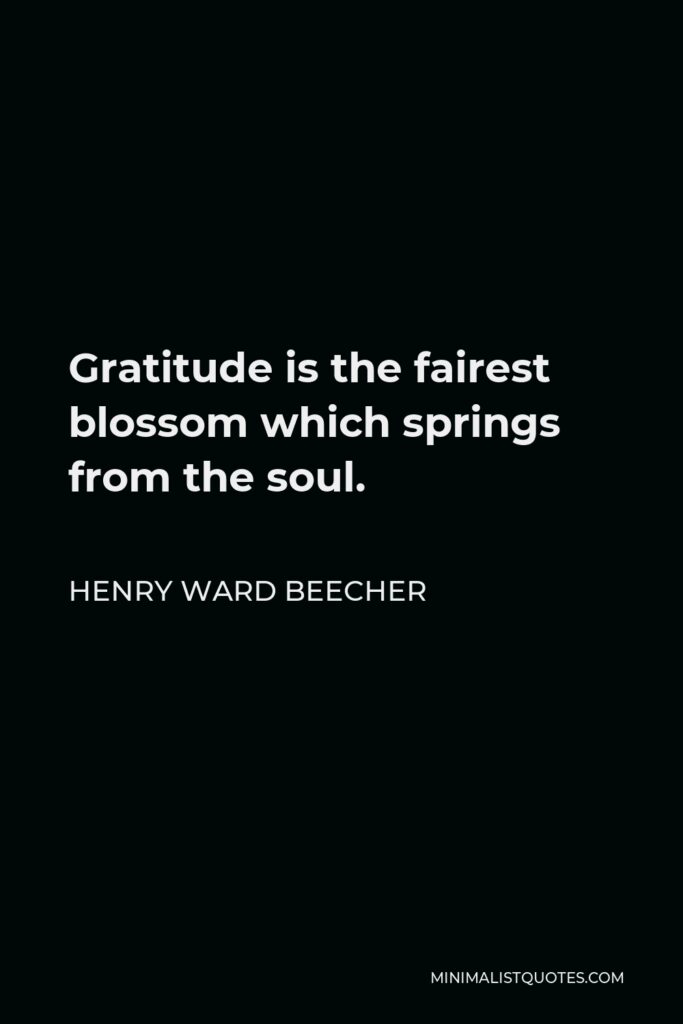

Gratitude is the fairest blossom which springs from the soul.
HENRY WARD BEECHER -







Our best successes often come after our greatest disappointments.
HENRY WARD BEECHER -







Happiness is not the end of life: character is.
HENRY WARD BEECHER
